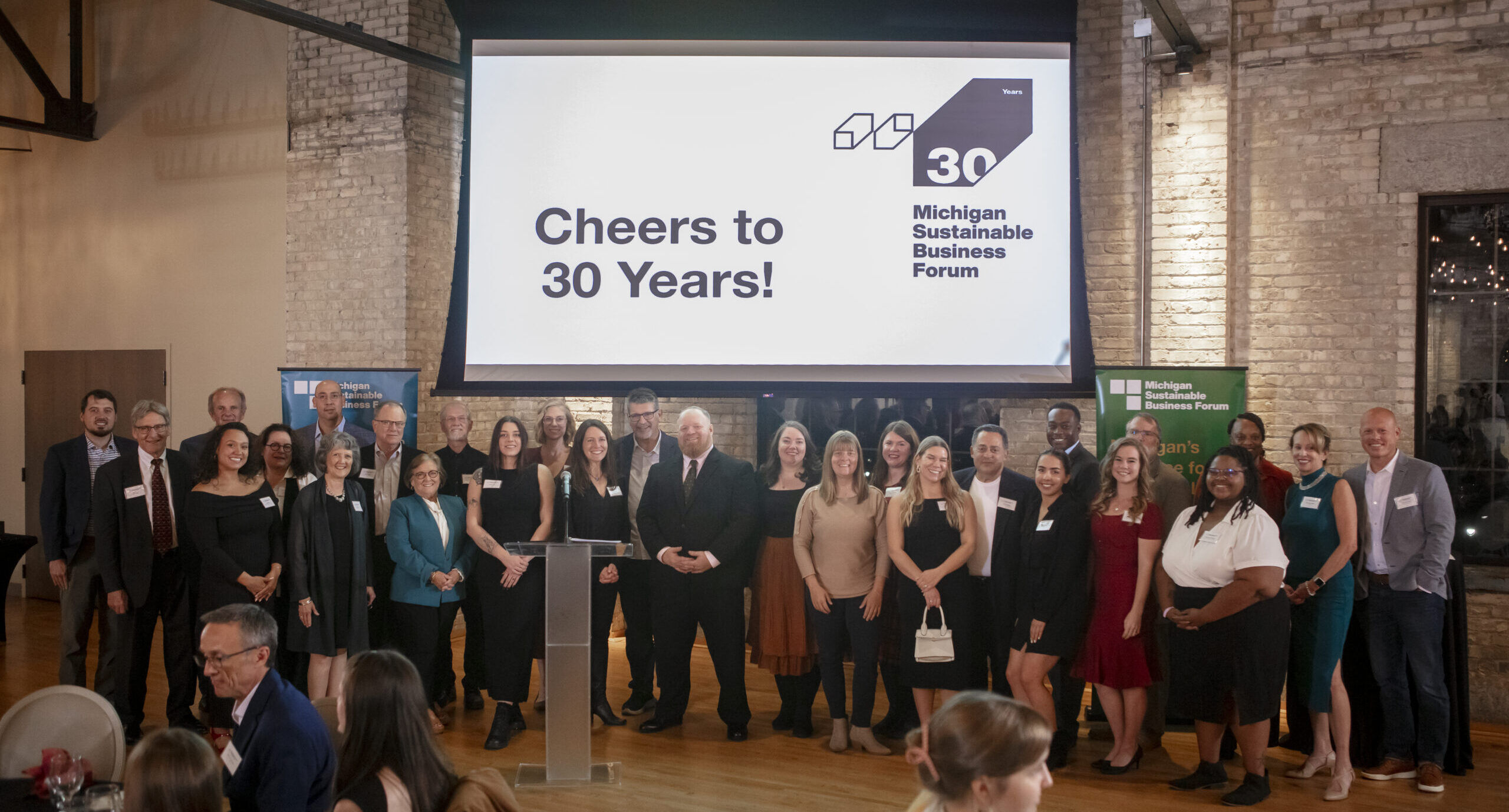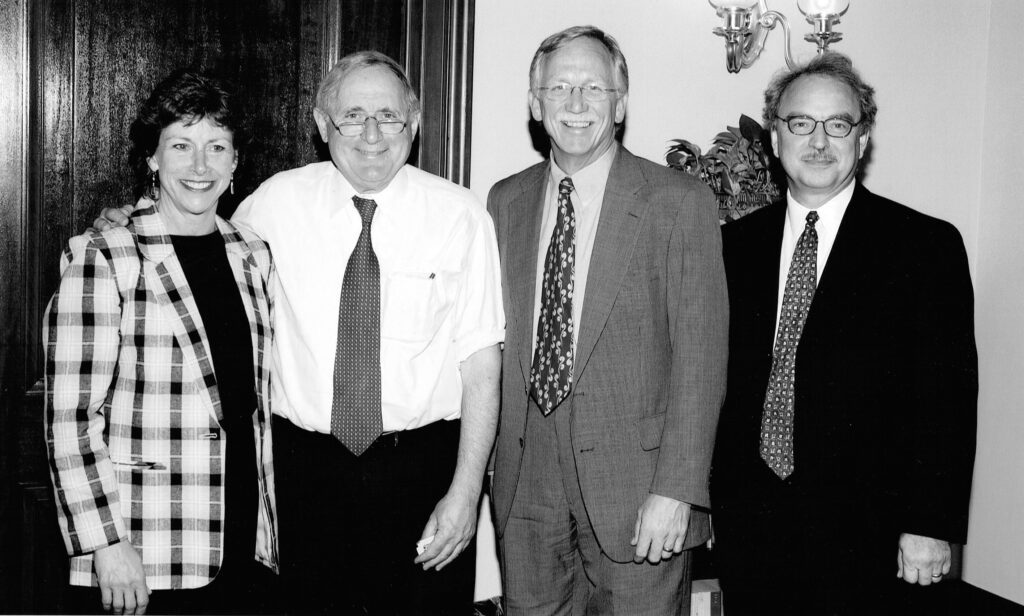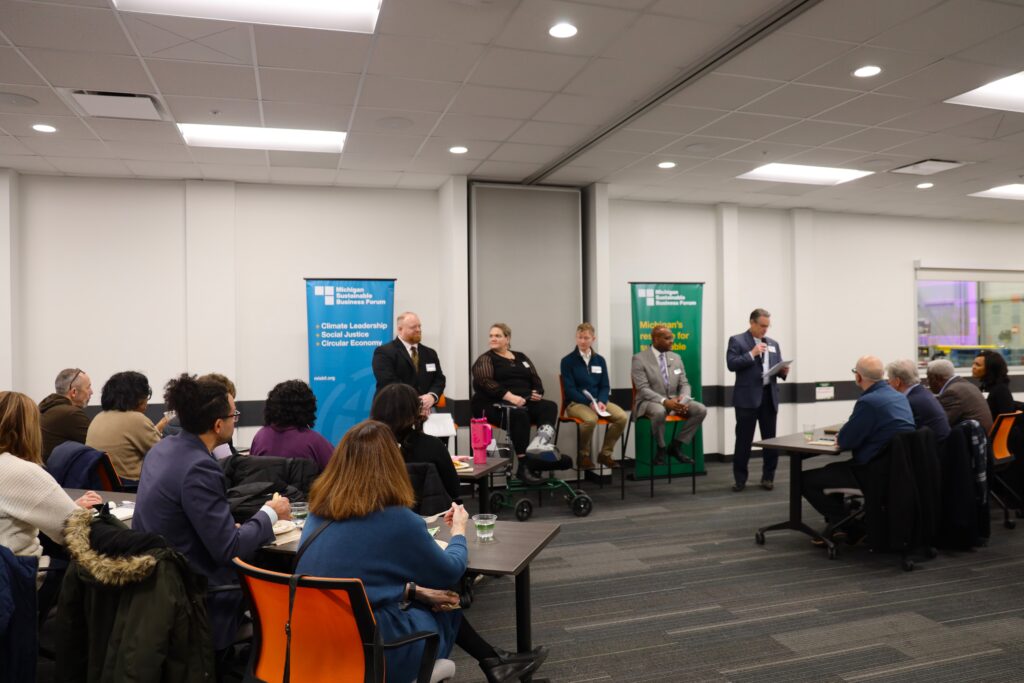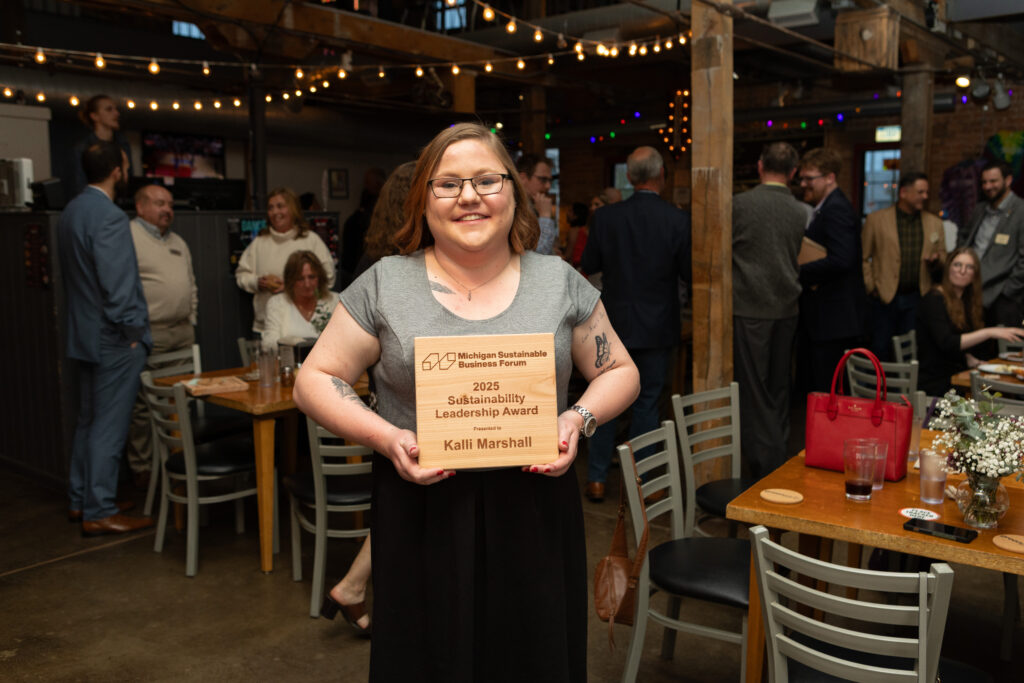
WMSBF Becomes Statewide Organization
May 12, 2025
In our most recent strategic plan, West Michigan Sustainable Business Forum announced that we would expand to a statewide program over a three-year period beginning in 2023. This week we began redirecting wmsbf.org to the web site of Michigan Sustainable Business Forum (you may have arrived on this page that way). The Forum is now doing business as a statewide organization.
As a regional organization, we have been the preeminent organization for sustainability professionals and sustainability programs in Michigan, and we believe we’ve had an impact beyond the region, even if that hasn’t been our intent. Today our work is diverse in nature, important, and we believe, innovative. We look forward to serving you as a new and broader Forum.
Celebrating 30 Years of Impact
WMSBF launched in 1994: We are celebrating our 30th Anniversary this year. With the rise of the modern environmental movement in the second half of the last century, the nation began to take notice of the negative impact of certain business practices on the natural environment and human health. Regulations followed. In West Michigan, largely spared the malicious actions that gave rise to the activist movement, local businesses were forced to reconsider and often account for actions that had been routine and commonly accepted. Some reacted with animosity, making industry the many headed villain of the environmental activist. Others were more pragmatic, becoming proactive, even principled. Adjustments in practices, systems, and equipment to comply with regulations could be a large financial cost. Aiming beyond compliance toward more sustainable business practices could limit the risk of future regulations, and in many instances provide economic value back to the organization.

A select group was taking it even further, experiencing personal revelations about the role of business in environmental and social concerns. Emboldened by a West Michigan culture that prioritizes natural resources and the well-being of employees and the community, pockets of very forward thinking emerged locally, parallel to national efforts by large environmental organizations to organize corporate partnerships.
One such forward-thinking professional, Bill Stough, held a seat on the board of West Michigan Environmental Action Council, the organization that led the charge locally for increased environmental regulation through the 60s and 70s. With the concept of a collaborative effort between West Michigan leaders in mind, Stough approached the WMEAC board with a proposal for a subsidiary organization comprised of businesses with an interest in collaborating on business practices that were more environmentally and socially responsible.
“As I talked to people on the WMEAC board, the idea came up — why don’t we spin off a group within WMEAC? To my great surprise, the board passed it.”
Twelve original founding members agreed to join, each putting forward $1,500 to establish a financial base for the fledgling organization. Early meetings between members featured the sharing of best practices and sustainable business techniques, as well as lengthy discussions about what direction the newly-formed “forum” should take.

It was long, hard work. Through it all there was a common thread: This forum should help organizations balance its impacts on people, planet and profit, the Triple Bottom Line. Members would focus on environmental concerns, but also on the impact their businesses and their efforts were having on their communities and society. Of course, any efforts undertaken by the group had to be financially feasible as well, preferably increasing the profitability of an organization.
The original members of West Michigan Sustainable Business Forum were first-generation sustainable business practitioners. There was no literature for sustainable industry. What little there was on the subject focused primarily on agriculture. With no best practices available, they began to create their own. Forum members were self-educated and entrepreneurial. They also put competitive differences aside to pursue common goals, as the forum played a key role in facilitating the office furniture industry adoption of sustainable business practices.
The Future of The Forum
As we look ahead to the future of our organization, we must ask ourselves how would 2035 or 2045 be different if The Forum did not exist. When we’ve imagined the future, and the work we must do, we’ve come to realize that we can no longer appropriately serve you as a regional organization. We can not lead initiatives we need or gain access to the necessary resources, if we are not prepared to work at that scale.
This year the brand transition our supporters have seen underway will be fully realized. In doing so, we intend to demonstrate why an organization like ours – which we believe is nationally unique – could only have existed if it was founded in West Michigan. We will continue to center the cultural and industry values of collaboration, design-thinking, and generosity that have made our region a leader in sustainable business.

Today we are growing to meet the needs of Michigan’s economy. We are working to address food loss and waste – to create a regenerative economy that addresses methane emissions and promotes sustainable materials management. We are working to make that economy a circular one, that is working to eliminate greenhouse gas emissions from its supply chains and main streets. We are working to support green schools, to leverage market power and private-sector influence to advance social and environmental justice, and to overcome barriers to adoption of sustainability and sustainable business practices due to language barriers, cultural or geographic isolation, or lack of resources.
We believe our transition from a historically regional organization will create a robust statewide resource ready to meet the challenges of a post-pandemic economy: A sustainable business climate that will be characterized by an historic acceleration of the movement in the state’s public and private sectors, and the need to defend this progress in an increasingly polarized political and cultural environment.
We hope that you will join us on this journey.
